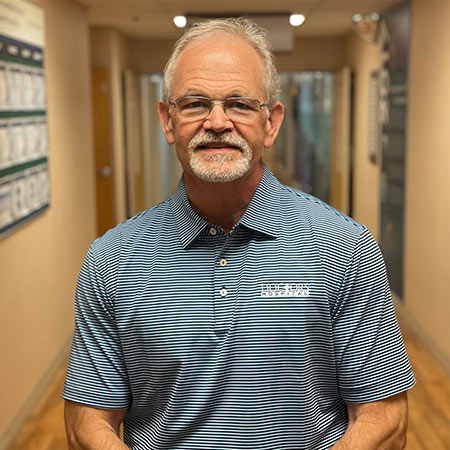
HCA Healthcare has a network of over 1000 Equity of Care Coordinators (ECCs) dedicated to serving our vulnerable populations, including those who might be deaf or hard-of–hearing, blind or have low vision, have limited English proficiency, or have service animals.
ECCs are advocates for all things Equity of Care and work as ambassadors to ensure a culture of inclusion and culturally competent care. Positioned at each of our sites of patient care, ECCs serve as the liaison between medical staff, patients and their families.
They have the tools to help with translations, find the right size wheelchair, or de-escalate a situation with a patient with special needs. And most, like the ECC at Doctor’s Hospital in Augusta, Dean Beasley, can get really creative when it comes to helping patients heal.
Dean has worked over 20 years as a rehabilitation director at the hospital. And now, in his new role, he is a compassionate voice for the patient and their family when they need it most.
Case in point
Twenty years ago, an electrical accident sent Emmanuel Martinez to the Doctors Hospital Burn Unit. He ended up losing both legs, his right arm, and a finger on his left hand. His life was forever altered and his future upended but that didn’t derail his return to health because in midst of all this – he met Dean Beasley.
“Emmanuel is probably my most memorable patient,” says Beasley. During his rehabilitation, they had been talking on the unit about him writing, painting or drawing. Dean then remembered a movie about quadriplegic Joni Eareckson Tada, an artist who drew with her mouth after an accident. “I did everything I could do to find that video,” he adds. “After seeing Emmanuel so inspired by it, we did whatever it took to get him the tools and the training to make it work.”
“She was painting with her mouth, and it was beautiful,” explains Emmanuel. “I thought, if she can do that with her mouth, I still have one hand – why can’t I do that too? So, I started with charcoal drawings, then acrylics, then a little bit with the oil,” he remembers. Emmanuel’s paintings and his life serve as an inspiration to others.
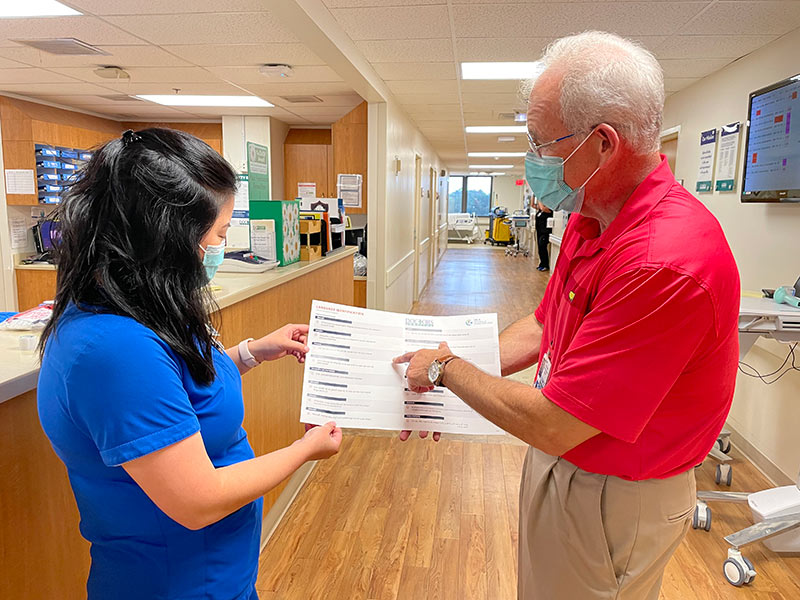
He often returns to the rehab unit to meet and encourage patients who have undergone severe trauma. “You never know what God has for you,” says Emmanuel. “He has a purpose. At that time, you don’t see it, but later on, you understand the purpose. Without this, I would have never met Dean.”
Meet them where they are
At Doctor’s Hospital our goal is to know who our patients not just by their room number or illness, but by who they are as a person. This knowledge lifts up the quality of care and reinforces our Care Like Family mentality. Paying attention to the individual, their emotional and physical needs and expectations, can help people get back on their feet and home with their families faster, safer, and with more mobility or capability than they might have expected.
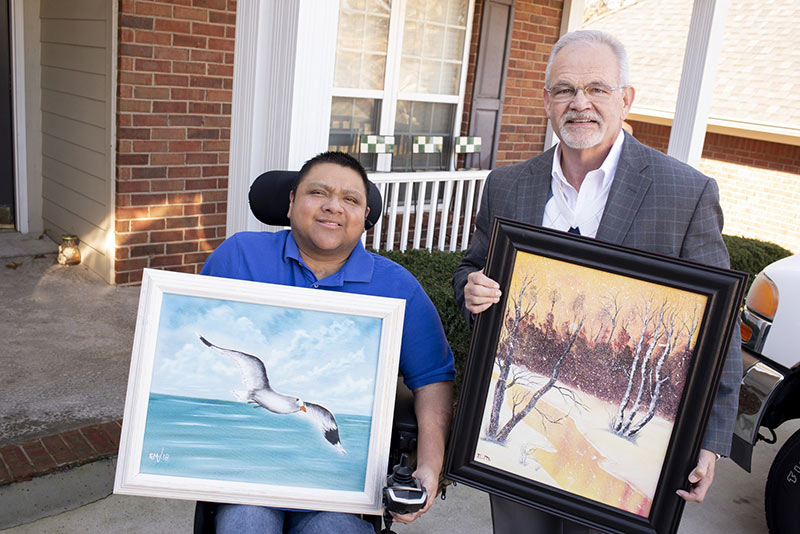
Dean notes equity of care means many different things depending on the situation. Sometimes it can mean large print menus or finding closed captioning on their TV. He says sometimes, “it can mean helping a husband, who is blind, in the labor and delivery room with his wife as their baby is being born and helping him get to experience as much of this amazing event as everyone who has their sight does. He may need to get to the gift shop for some flowers, find a bathroom, the nursery, or get a cup of coffee. These things may seem normal to you and me, but he needs assistance.”
The ECCs are also contacted when language services are needed for a patient or their companion to make sure they understand procedures, test results, and treatment options so they can make an informed decision about their health.
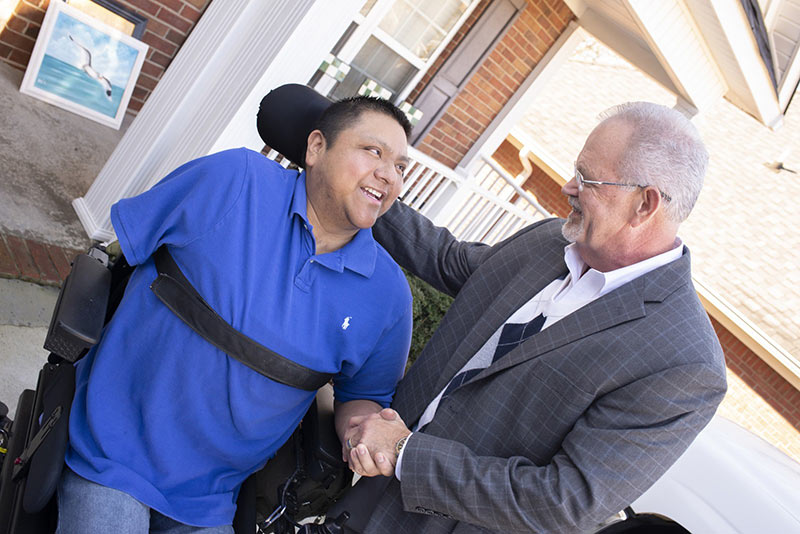
“We provide translation services in 15 primary languages spoken in the area and hundreds of others as might be needed including American Sign Language,” says Dean. “Having this service literally at our fingertips comes in handy, especially when there are older patients who may not speak English fluently enough to fully comprehend medical diagnosis and treatment options and often revert to their native language when illnesses escalate. This service allows us to know they understand fully before beginning procedures or undergoing tests,” he adds. Families are helpful but are not always available.
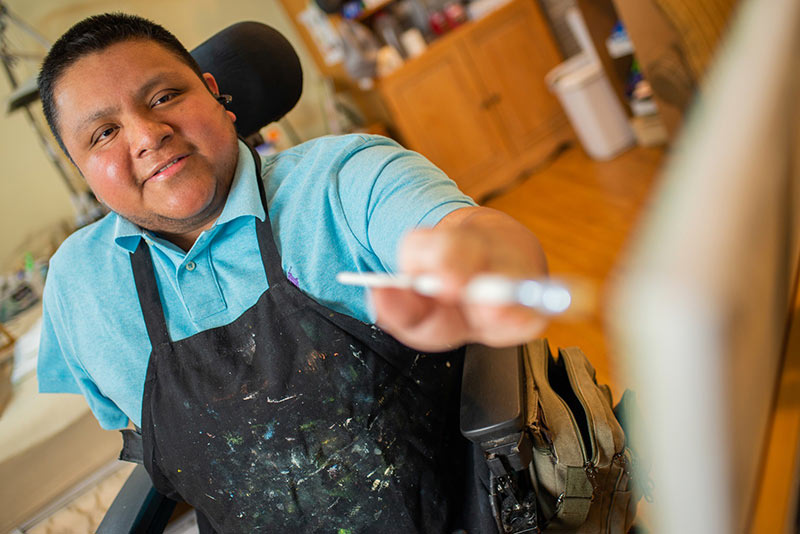
Advancing health equity requires healthcare providers not only understand a patient’s health history, but also who they are as individuals and the context in which they live. “At Doctor’s Hospital we use our clinical expertise combined with a unique regard for individual’s needs, beliefs, cultural experiences and expectations for care to deliver the best care to every patient,” says Beasley. The services also assist us in connecting with family members who may even be out of our area, or even out country, if further medical history or information is needed.
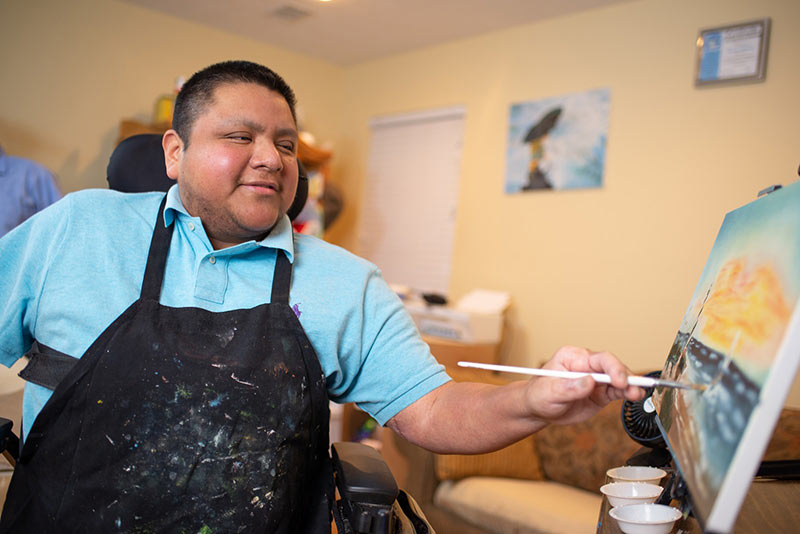
“To build a culture of health, we must first ensure everyone has the basics to be healthy. And when it comes to expanding opportunities for health, thinking the same approach will work universally is like expecting everyone to be able to ride the same bike,” says Dean. “The key is to remember there is no ‘off-the-shelf’ solution. In cases like Emmanuel and others, it takes time, ingenuity, patience, and compassion to fully understand their needs and to truly help them heal.”
$webqFacilityNumber
Need a Physician?